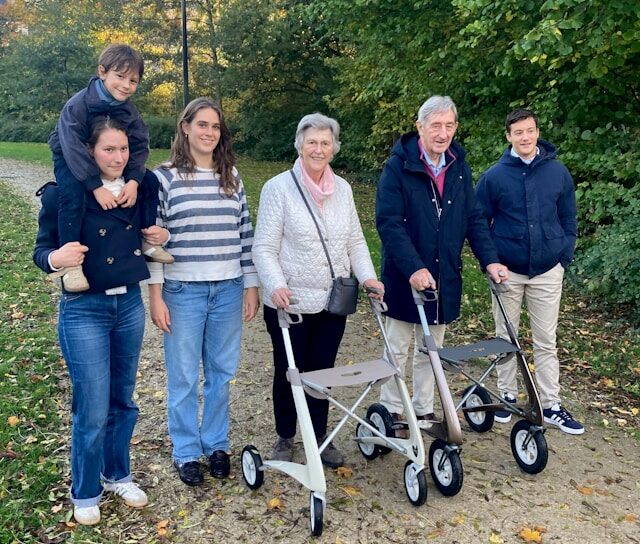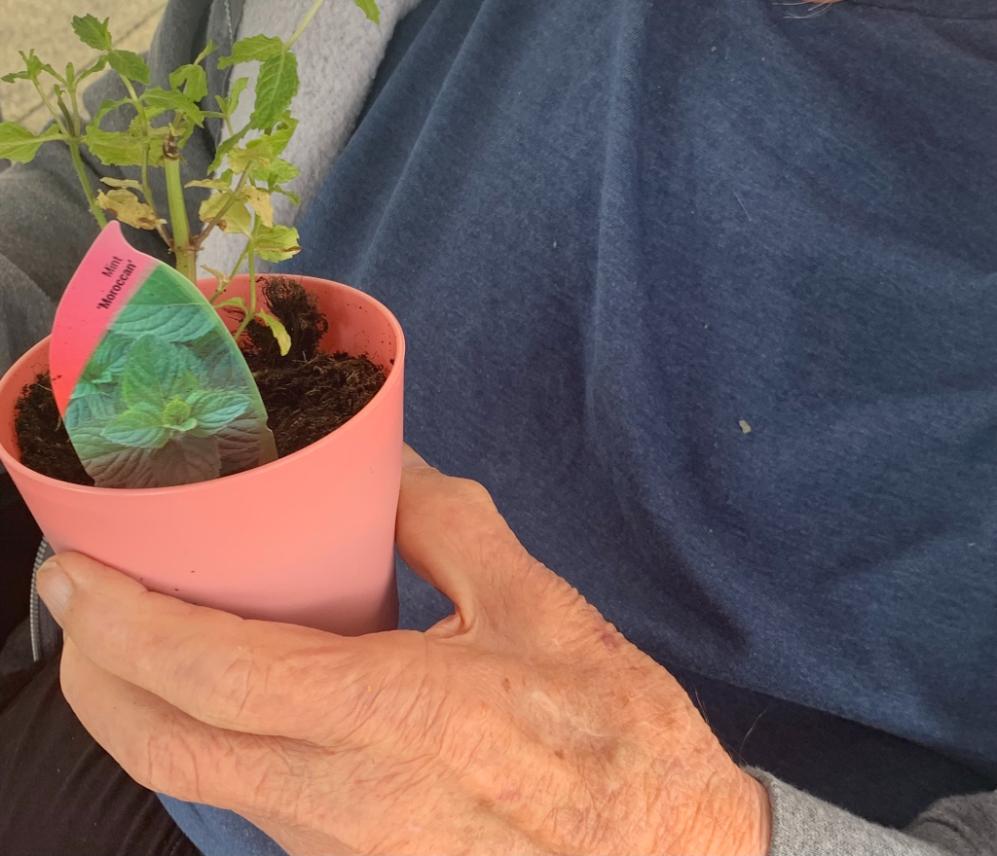Understanding The Difference Between Palliative Care and Hospice Care

When faced with a life-limiting illness, individuals and their families often hear two terms repeatedly: palliative care and hospice care. These services are both designed to provide comfort, dignity, and support during times of serious illness, but they are not quite the same. So what do they mean, and what is the difference? Understanding the contrast between the two can help people make informed decisions, find the right care options, and ensure that potential residents and family members receive the support they need at this critical and often emotive time.
Though the terms are sometimes used interchangeably, palliative care can be introduced much earlier in the course of illness, while hospice care is usually reserved for people approaching the final months of life. Both forms of care, however, share a holistic approach that recognises the importance of medical treatment, mental health, personal care, and emotional and spiritual wellbeing.
Defining Palliative Care
Palliative care is an approach that focuses on improving the standard of living for people facing serious or long-term health conditions. It is not restricted to the final stages of life and can be offered at any stage of illness, sometimes even alongside active treatment such as chemotherapy, radiotherapy, or surgery for advanced cancer.

Delivered by a specialist palliative care team, this service and approach brings together healthcare professionals with specialist training in palliative practices, nurses, social workers, occupational therapists, and other medical professionals. The aim of this is to manage frequent symptoms, relieve pain where possible, reduce distress, and provide supportive care for both the person and their family.
For example, a person with dementia or advanced cancer may experience fatigue, nausea, shortness of breath, anxiety, or other symptoms that impact their daily life. Palliative care services address these issues/symptoms through a combination of channels, including medication, counselling, spiritual support, and practical assistance with daily tasks such as washing, dressing, and taking medication. This person-centred model ensures that care is tailored to individual needs and wishes.
Importantly, palliative care is not only about clinical intervention, it's a holistic approach that also offers psychological support, emotional care, and guidance for loved ones. Social care professionals and community nurses may visit at home to provide advice and help with personal care, thereby allowing people to receive care in the comfort of their own surroundings wherever possible.
Defining Hospice Care
Hospice care is a specific type of palliative care, but this is soley provided at the end of life. Typically, it is offered when a doctor assesses that someone may be in the last six months of their life, although individuals may receive hospice support for longer depending on their condition.
The core purpose of hospice care is to provide dignified, compassionate end of life care, focusing on comfort rather than curing the illness. People may receive hospice care in a dedicated hospice facility, a care home, a nursing home, hospital, or even in their own home, depending on individual preferences and medical needs.
Hospice services emphasise personal care and provide support not only for the person who is ill but also for carers, friends, and family members. This might include respite care to allow a family member to have a break, bereavement counselling for friends after a loved one has died, or ongoing psychological support for carers. A team of doctors, nurses, social workers, occupational therapists, and other professionals all work together to manage pain, control symptoms, and provide comforting end of life experiences and care.
Spiritual beliefs are respected and incorporated into hospice programmes, with chaplains or spiritual carers often available to ensure that people’s cultural and religious needs are supported. Hospice staff are trained to treat the whole person, considering emotional needs, spiritual support, and personal wishes alongside physical health.
Key Differences Between Palliative Care and Hospice Care
While both types of care share the same philosophy of comfort and dignity, there are four key differences to be aware of:
1. Timing of Care
The most significant difference is when each type of care begins. Palliative care can start from the moment a serious, life-limiting illness is diagnosed, often running alongside treatments aimed at curing or slowing down disease. Hospice care, by contrast, begins when curative treatment is no longer being pursued, and the focus shifts entirely to comfort.
2. Goals of Care
In palliative care, the main goal is to improve quality of life at any stage of illness, helping people cope with symptoms while continuing to pursue medical treatment. Hospice care, on the other hand, centres solely on end of life care, aiming to give peace, comfort, and dignity in a person’s final months or weeks.
3. Care Settings
Palliative care can be delivered in hospitals, at home, in care homes, or in local outpatient clinics, allowing flexibility for those who wish to continue active treatment. Hospice care is more closely associated towards end of life settings, frequently provided in hospice facilities, nursing homes, or as a comprehensive home care programme.
4. Support for Families
Each approach provides family support, but hospice care places an even stronger emphasis on carers’ wellbeing, offering respite care, bereavement support, and specialist mental health services for family members and friends after their loved one has passed away.
How Healthcare Professionals Work Together
Both palliative care and hospice care rely on a team of healthcare professionals working collaboratively. These multidisiplinary teams include hospital doctors, nurses with specialist training in palliative medicine, social workers, occupational therapists, psychologists, and sometimes volunteers. They provide medical treatment, help with common symptoms, psychological support, and assistance with spiritual beliefs and practices.

Community nurses often visit at home, checking and adminsitrating medications, assisting with personal care such as personal care, dressing, eating, and ensuring that residents in care homes or those remaining at home receive the appropriate care. Carers and family members work alongside these professionals, supported with advice and training when needed.
This interdisciplinary cooperation ensures that care is not fragmented. Instead, individuals benefit from coordinated, holistic support covering every aspect of life such as physical, emotional, mental, and spiritual.
The Role of Personalised Care Plans
Both hospice and palliative care involve creating detailed, personalised care plans. These plans reflect the person's wishes, cultural values, and evolving needs. They balance medical treatment with life care, covering everything from medication schedules through to spiritual support and decisions about the place of care at the end of life.
For example, a person with dementia may require dementia care tailored to behavioural changes and supported by antipsychotic medications when appropriate, while someone with advanced cancer may need intensive symptom management. In both cases, care services and plans are adapted to maximise comfort and maintain dignity and respect.
These care plans also help families know what to expect and allow health and social care professionals to deliver consistent, compassionate treatment.

Understanding the difference between palliative care and hospice care is not just a medical decision, it is an important step in helping families feel more prepared, supported, and in control. Whether someone is managing a serious long-term illness and continues to benefit from treatment, or is entering the final stages of life and seeking comfort and dignity, choosing the right type of care makes a real difference.
At our care home, we understand how emotional and overwhelming these decisions can feel, and we are here to provide guidance, compassion, and the reassurance that every individual’s wishes and wellbeing remain at the heart of their care. By seeking the right support early, families can ensure their loved one lives with dignity, comfort, and the highest possible quality of life.
Take the worry out of care choices and find a place your loved one can truly call home. Reach out to Hampton Care Home today, let our compassionate team help you create new moments of comfort, dignity, and joy for your family. Arrange a visit or speak with our caring staff, and discover the peace of mind and heartfelt support waiting for you here



